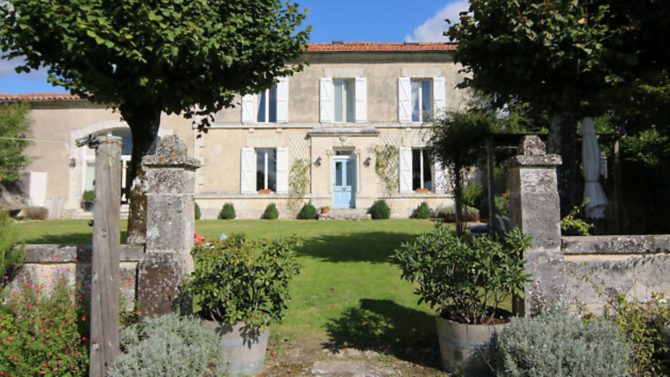Town vs country in Charente

Whether you’re looking for a terraced home in town or a rural retreat in the country, Charles Miller explores the benefits of both in the Charente department

One of the four departments of the Poitou-Charentes in southwest France, the Charente was, until quite recently, relatively unknown. From its heyday in the 19th century when its main product, cognac, brought vast wealth, the area fell into a slow decline as a provincial backwater. All change. The cognac industry has seen a strong resurgence and is by far and away the biggest source of employment in the department, but new industries are also taking hold, not least of which is tourism – with a growing number of tourists choosing to buy second homes or permanent residences.
A wide variety of property awaits those looking to buy in the area and perhaps one of the first decisions to be considered is the choice between a house in town and one in the country. There are numerous advantages to both and before dismissing one or the other out of hand, time taken to reflect on these is certainly time well spent.
Whilst still a rural department, the Charente does have a number of towns with fascinating histories: Angouleme – formerly a key player in French royal history and now capital of the French comic strip industry, Cognac – birthplace of kings and home to perhaps the world’s most famous brandy, and beautiful Jarnac – birthplace of François Mitterrand and truffle capital of the region!
Choose to buy a property in town and you are opting for convenience. The local shops will no doubt be within walking distance or a short drive, as will the restaurants and bars. There is little more satisfying than a comfortable walk home after a wonderful French meal. But more than this, the town may be more easily accessible from the UK making a short visit by train without the need for a car a real possibility. You will have neighbours who will, no doubt, keep an eye on your property for you and let you know if anything is amiss.
On a more practical level, the property is more likely to be connected to mains drainage and mains gas and there will no doubt be easy access to the doctor and other administrative services. Nevertheless, a town property is more likely to be attached or in a terrace, near a road and, with the exception of the large town mansions, outside space, if any, is likely to consist of a small courtyard or at most a very little garden.
Dispersed amongst the rolling vineyards and farmland are some very attractive villages with their village squares, petanque pitches and 12th century Romanesque churches. Some have an impressive chateau or an ancient abbey and most will have their lavoir (wash-house).
Choose to buy a property in the country and you are perhaps opting for the good life. Village life is generally slow and quiet; after all, the emblem of the department is the snail and one Charentais village forms part of Cittaslow movement whose aims include improving quality of life by slowing down its overall pace.
Village and country houses come in a wide variety – from the small terrace to a larger, detached village fermette or an old farmhouse. Most are likely to have gardens, some with large gardens, swimming pools and outbuildings with development potential for gîtes. Many people like to have the option of running a chambres d’hôtes or gîte rental business and there is more demand for this in the country.
A village or country property is less likely to benefit from mains drainage so a basic understanding of the fosse septique is essential (but if there is no mains drainage, the water bill will be less). It is rare for there to be mains gas, so heating will either be provided by oil electricity and there are also likely to be fewer facilities and shops – many villages having none.
There are clearly benefits to both town and country life and it is a wise person who takes the time to really reflect upon what is genuinely important to them, on which search criteria they would be prepared to compromise and who responds to the experience of their estate agent.
Share to: Facebook Twitter LinkedIn Email


